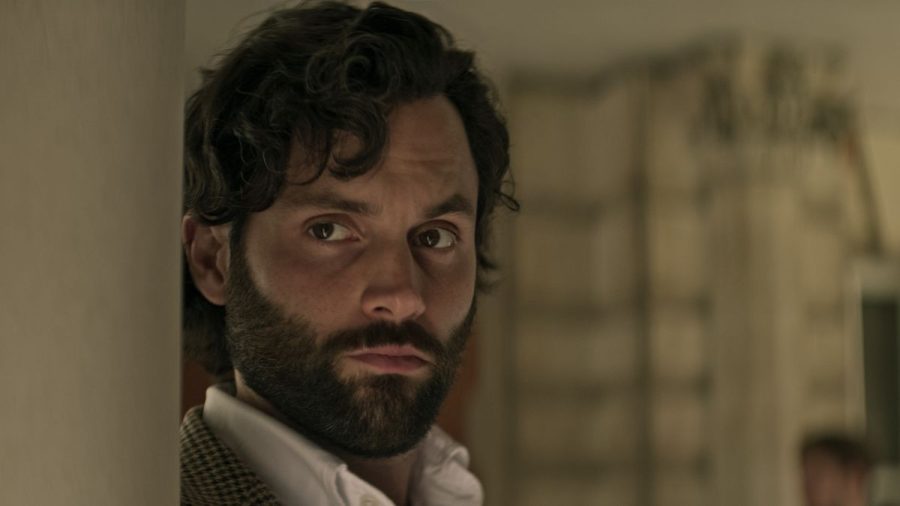Netflix’s “You” is killer, but I’m dying from boredom.
Penn Badgley as Joe Goldberg in Season 4 Part 1 of Netflix’s “You”.
February 27, 2023
A previous article on this site covered the topic of serial killers in the media, specifically in reference to the recent Netflix show, Dahmer, based on the real life serial killer Jeffrey Dahmer. In that article, morals seem to be a little more apparent than in the article I propose now. In the real world it is much easier to see the black and white of murder and violence, but in fiction those become variations of gray.
Fictional serial killer and misogynist Joe Goldberg from the Netflix series You is not just a murderer. He’s also an ethical nightmare. Played expertly by Penn Badgley, who also happens to despise the character just as much as anyone really should, Joe is a satirical take on the typical misogynistic serial killer. With the cliche backstory of a neglectful mother and absent, abusive father, the writers of You seem to toy with elements of real life serial killers. Watching You is like reading “Lolita”, in that the audience and author can both agree that the “protagonist” (for lack of a better term) is indeed repulsive and morally messy. But because the series exists in the realm of fiction, the writers can show how easy it is to justify his actions, just how simple it is to fall in love with the evil in the world.
I find myself rooting for murder, manipulation, lying, revenge, and evading the police for all of the above. Some part of me feels bad for liking Joe so much. He represents all that is wrong with modern culture, and yet I find him so fascinating. His sense of urgency and his justification is so absurd, and it is with this that I can address just why the latest season of You is so unnerving to me. The writers had a wonderful formula, but they decided to mess with it, throwing in a Whodunit aspect that I frankly don’t care for.
This release, so soon after Glass Onion, can’t help but bring up similarities. Both are about a main character solving a Whodunit while also satirizing the upper class and modern society. This isn’t too far off from the themes of the first three seasons, where Joe is portrayed as an outsider, a spot in the sea of wealthy. But I feel that as the shift focuses on the other characters, it seems to lose the core of the show- that Joe is the problem.
In season four, Joe is almost morally sound. And it’s boring. The protagonist is supposed to be a parody of the incel, of “nice guys”. But instead, Goldberg comes off as a nice guy, no air quotes. He makes judgements about the other characters in the fourth season, but he is also shown to save them, he may find them vapid but the amount of murder in this season is drastically less than in those previous. One of the things that made the show interesting is the intricate and intimate relationships between Joe and his obsession, and his background. The latest season seems to lose this intimacy, as the focal point is changed to this new group of characters.
The most major loss for the show thus far, is the tension between Joe and Love Quinn, his former obsession turned wife and partner in crime. There was something very raw and intriguing about both characters murdering for one another, and the struggle to stay a team. This was something that was rather new to the media, as I can attest I’ve rarely – if ever- seen a show or film tackle this sort of dynamic. But in the fourth season, the show has regressed to a cliche whodunit. It feels cheap and disorganized. The show went from one of my favorites to just another mystery. And the reveal of the killer was once again, boring. Easy to predict, and even easier to forget.
Rumors are that Love Quinn might make a return in the later part of the season, set to release on March 9th. She was featured in the trailer for Part 2, and I’m hopeful that she’ll spice things up. Especially if the route the show takes is that Joe and Quinn will sort of face off, in some battle of wits and murder.


